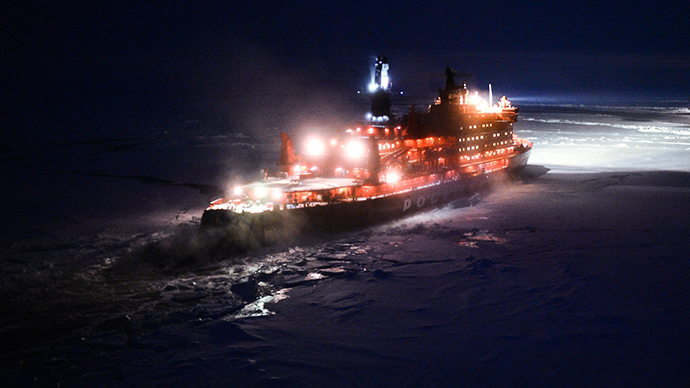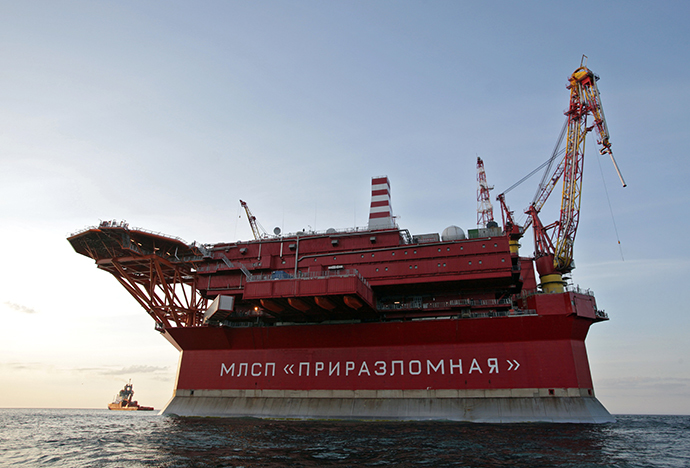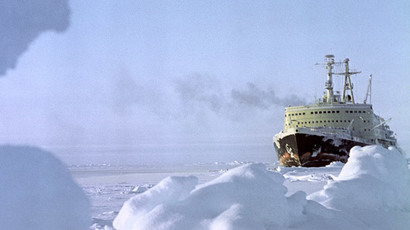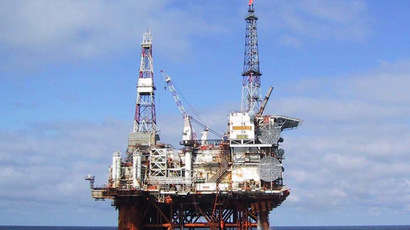Russia: We don’t want the Arctic to become arena of conflict

Russian foreign minister Sergey Lavrov attempted to dampen the escalating rhetoric around the Arctic, after his Canadian counterpart said his country was ready “to protect its sovereignty” in the resource-rich region.
"The Arctic shouldn’t be dragged into the rhetoric of militarization,” the Russian official said during a Q & A at the Seliger youth forum in central Russia.
“There are accusations flying about that we are trying to make a land-grab during a latter-day gold rush. This is nonsense. We don’t want the Arctic to become an arena of conflict.”
Lavrov’s answer was a response to comments attributed to Canada’s foreign minister John Baird, who told Denmark’s Berlingske newspaper earlier this week that Ottawa was “determined to promote and defend the sovereignty of Canada in the Arctic” in the face of the Russian threat, manifested in the reactivation of a Soviet-era base off its north-eastern coast, and fly-bys by Russian aircraft.

“Baird’s press service has tried to say that his comments were lost in translation and misunderstood. But I do not think this is the case – he has a reputation for such flourishes,” said Lavrov.
The veteran diplomat suggested that the Arctic Council – which includes Russia, Canada, the US, Denmark, and Norway, the five Polar Circle countries – should take the lead role in establishing the framework for the development of the region.
"This is the legitimate format, which allows the five countries to establish their rules for interaction in the region.”
The territories beyond the Polar Circle are thought to contain 15 percent of the world’s oil, and 30 percent of its gas, according to US Geological Survey research.

"When we get together in the framework of this forum, no one ever mentions any conflicts and confrontations. Everyone is interested in preserving cooperation and international law as the basic principles for exploration and development of the region," emphasized Lavrov.
Canada boycotted the Moscow meeting of the Council this April, in protest against events leading to the secession of Crimea from Ukraine.
The two countries, which already have the largest slice of the Arctic, are in the process of lodging applications to the UN that would extend their 200 mile nautical border further, if they manage to definitively prove that parts of the Arctic are extensions of their own continents, covered only by a shallow mass of water. Canada submitted an initial claim late last year, while Russia, which first laid claim to the land near the North Pole in 2001, will hand in a beefed up application next year.

“The formalization of our rights granted by the Russian continental Arctic shelf is nearing completion. This will be a long procedure but we're confident we have all the legal grounds for formalizing our rights to the entire continental shelf in the Arctic Ocean,” said Lavrov.
The Russian diplomat also attempted to assuage concerns that the ecologically unique territory will be at the mercy of oil-producing countries, as all five nations have extraction projects in the region at various stages of completion.
“The Arctic Council recently took a decision to admit observer countries. This was a long process. But now we are joined by various EU states, China, India, Japan, and Korea. Though of course, the final decisions will be in the hands of the five leading players.”
Lavrov also launched a barb at Greenpeace, one of the most vocal opponents of Arctic development, which had its ship temporarily seized while boarding a gas extraction platform off the Russian coast last year.
“Greenpeace can rest easy – we share its concerns about oil spills and the ecological situation of this region. But unlike their attention-seeking protests, we are doing all the practical work.”














